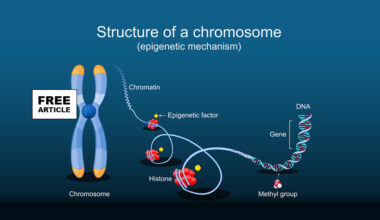Autoimmune diseases are the third most prevalent disease category, outpaced only by cancer and heart disease. Autoimmune diseases occur when the immune system, which typically defends the body against harmful invaders like bacteria and viruses, begins to attack healthy tissues causing inflammation and damage. These disorders disproportionately affect women, with approximately 80% of all autoimmune disease patients being women. Understanding why these diseases occur more frequently in women, their implications, and how they can be managed is a crucial area of study in modern medical science.
Women are especially prone to autoimmune conditions. Below are some of the most common autoimmune diseases that disproportionately affect them:
- Lupus (Systemic Lupus Erythematosus): Lupus is a chronic condition that can affect the skin, joints, kidneys, heart, and lungs. It is nine times more common in women than in men.
- Rheumatoid Arthritis: This condition involves chronic inflammation of the joints and is three times more common in women.
- Multiple Sclerosis (MS): MS affects the central nervous system and is twice as common in women.
- Hashimoto’s Thyroiditis: Hashimoto’s thyroiditis, a condition affecting the thyroid gland, is significantly more prevalent in women.
- Sjögren’s Syndrome: This autoimmune disease targets the glands that produce moisture, leading to dry eyes and mouth, and affects women disproportionately.
Women have 28 trillion cells all with XX chromosomes; and males have 36 trillion cells with XY chromosomes. In women, most genes on one of the two X chromosomes are silenced in every cell. This inactivation makes each female a functional mosaic because some cells express one X chromosome, and other cells express the other. Women inactivate one X chromosome per cell to match the gene expression levels of men. Every cell in a woman’s body epigenetically silences one of two X chromosomes via the action of a long non-coding RNA (lncRNA) called X inactive specific transcript or Xist. Xist is transcribed, from the X chromosome that will be inactivated, and it coats the chromosome, triggering gene silencing and other epigenetic changes.
Not all genes are silenced approximately 15% of X-linked genes escape X-chromosome inactivation and are expressed from both X chromosomes. The sex biases in autoimmune diseases may be partially explained X-linked gene overexpression and X-chromosome inactivation abnormalities. When X-chromosome inactivation is incomplete some genes for example, CD4OL and TLR7 escape silencing. Overexpression of these genes enhance immune reactivity, promoting autoimmunity.
Currently there is no cure for most autoimmune diseases, various treatments can help manage symptoms and improve quality of life:
- Medications: Immunosuppressive drugs, corticosteroids, and biologics are commonly used to control inflammation and immune system activity.
- Lifestyle Modifications: Maintaining a healthy diet, engaging in regular exercise, and managing stress can help reduce symptom severity.
- Alternative Therapies: Practices such as acupuncture, meditation, and yoga may provide relief for some individuals.
- Regular Monitoring: Frequent check-ups and collaboration with healthcare providers are essential to track disease progression and adjust treatments.
Epigenetic Therapy Strategies Involving Xist may well be the future treatment of autoimmune diseases in women. Several strategies may be employed:
Restore Proper Xist Function
Therapy might aim to:
- Restore Xist localization to the inactive X chromosome.
- Or reactivate proper silencing of X-linked immune genes (e.g., TLR7, CD40L).
Other Potential Approaches:
- Small molecules or long noncoding RNA to stabilize Xist
- CRISPR/dCas9 epigenetic editors to reinforce heterochromatin marks at Xist target sites.
Autoimmune diseases can profoundly impact various aspects of a woman’s life, including chronic pain, fatigue, and organ dysfunction which may limit daily activities and reduce quality of life. Living with an autoimmune condition can lead to anxiety, depression, and feelings of isolation. The unpredictability of flare-ups can exacerbate mental health challenges. Some autoimmune diseases, such as lupus, can affect pregnancy and fertility. Women with autoimmune conditions may face higher risks of complications during pregnancy, such as preterm birth or miscarriage.
The financial burden of treatment, frequent visits to healthcare providers, and potential loss of employment due to physical limitations contribute to the social and economic challenges faced by women with autoimmune diseases.
Through research, education, and advocacy, we can provide better support and treatment options for women living with autoimmune diseases.









